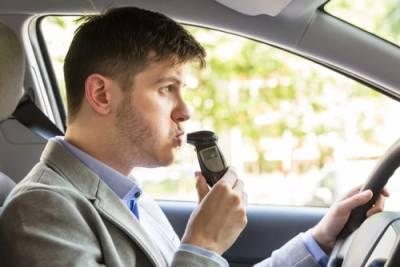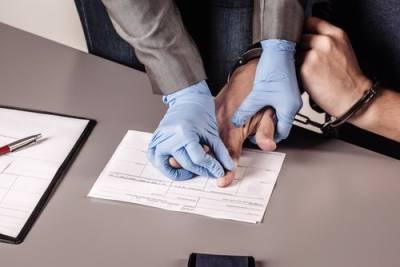Recent Blog Posts
What is an Illegal Search and Seizure?
 As an American, we have certain rights that are protected by the Constitution. Among these crucial rights is the right to be free from unreasonable searches and seizures of personal property. In other words, government officials, including police, must have a valid reason to search an individual’s property. However, what qualifies as an “unreasonable search” is not always easy to ascertain.
As an American, we have certain rights that are protected by the Constitution. Among these crucial rights is the right to be free from unreasonable searches and seizures of personal property. In other words, government officials, including police, must have a valid reason to search an individual’s property. However, what qualifies as an “unreasonable search” is not always easy to ascertain.
When Can Police Search My Home?
Police officers are limited in their ability to search a person’s house, apartment, mobile home, or other residence. Most of the time, police officers must get a search warrant before they can search a home. A search warrant will list the parameters of the search including the areas police are allowed to search and how long they have to complete the search.
There are exemptions to the search warrant requirement. Police may enter a person’s home and search for illegal materials or evidence of a crime without a search warrant under the following circumstances:
Top Questions About BAIIDs in Elgin, Illinois
 The state of Illinois has instituted significant penalties for individuals convicted of drunk driving. Depending on the circumstances of the offense and the driver’s criminal history, a conviction for driving under the influence can lead to fines, driver’s license suspension or revocation, and even jail time. Fortunately, Illinois law also offers DUI offenders options for regaining their driving privileges. Often, driver’s license reinstatement requires the driver to install a Breath Alcohol Ignition Interlock Device.
The state of Illinois has instituted significant penalties for individuals convicted of drunk driving. Depending on the circumstances of the offense and the driver’s criminal history, a conviction for driving under the influence can lead to fines, driver’s license suspension or revocation, and even jail time. Fortunately, Illinois law also offers DUI offenders options for regaining their driving privileges. Often, driver’s license reinstatement requires the driver to install a Breath Alcohol Ignition Interlock Device.
When is a Breath Alcohol Ignition Interlock Device Required?
Most of us drive multiple times a day. You may need to drive to get to and from work, pick up your children, attend medical appointments, and fulfill other important responsibilities. Fortunately, there may be a way for DUI offenders to get back behind the wheel legally.
Self-Checkout Trickery Can Lead to Theft Charges in Illinois
 Grocery stores and retail chains across the United States are relying on self-checkout kiosks more and more. Self-scanning checkouts can reduce costs and speed up the checkout lines. However, they also offer additional opportunities for theft. One study showed that $850,000 of goods were stolen from self-checkouts over the course of 1 million transactions.
Grocery stores and retail chains across the United States are relying on self-checkout kiosks more and more. Self-scanning checkouts can reduce costs and speed up the checkout lines. However, they also offer additional opportunities for theft. One study showed that $850,000 of goods were stolen from self-checkouts over the course of 1 million transactions.
If you or a loved one were charged with retail theft after using a self-checkout, contact a criminal defense lawyer for help. Shoplifting may seem like a petty offense; however, it can lead to significant criminal penalties and even jail time.
Misusing the Self-Checkout Can Have Serious Consequences
Self-scanning kiosks are becoming increasingly popular. At a self-checkout, the customer is responsible for scanning the items in his cart, bagging the items, and paying the total. However, self-checkouts are not always used correctly. Some customers intentionally or unknowingly miss items while scanning. Others switch price tags on items to avoid paying full price. Another common tactic is to ring up an expensive item as a lower-priced item. This so-called “banana trick” is possible when the price of the item is determined by the item’s weight. Actions like these may seem harmless. Many people accused of self-checkout tricks like these do not even realize that the actions are technically shoplifting. It is only when the police show up with handcuffs that they realize how serious the situation really is.
Fighting False Allegations of Domestic Violence in Illinois
 Domestic violence is a very real problem in this country. According to national statistics, almost 25 people per minute are victims of domestic violence. This comes out to more than 12 million victims every year. Far too many victims end up being killed by their intimate partners, and this has led the courts to take any accusations of domestic violence seriously. Unfortunately, some people make false accusations of domestic violence against a current or former partner because they have their own agenda. Not only is this unfair to real victims, but the severe consequences false allegations of domestic violence can have on a person’s life can be devastating.
Domestic violence is a very real problem in this country. According to national statistics, almost 25 people per minute are victims of domestic violence. This comes out to more than 12 million victims every year. Far too many victims end up being killed by their intimate partners, and this has led the courts to take any accusations of domestic violence seriously. Unfortunately, some people make false accusations of domestic violence against a current or former partner because they have their own agenda. Not only is this unfair to real victims, but the severe consequences false allegations of domestic violence can have on a person’s life can be devastating.
Reasons Why People Make False Accusations
Given the damage a domestic violence accusation can cause to a person’s life, it may be hard to understand why someone would make a false claim like this. However, there are several common reasons why someone files false charges. Many of these allegations are made if a couple is going through a divorce or child custody battle in order to get the “legal” upper hand. A former partner may also be so angry over a breakup that they make the accusations out of vindictiveness.
Can I Enlist in the Military if I Have a Criminal Record?
 Having a criminal record can affect many areas of a young person’s future, such as employment, education, and housing, depending on the nature of the offenses they were charged with. Another area that can be impacted is a young person’s plan to join the military. It is not uncommon for a teen to go through their high school career with the intention of joining a branch of the military upon graduation. Many teens even do early enlistment, signing up in their junior year so everything will be in place when they have completed their senior year. But what happens if a person who wants to enlist in the military is arrested or already has a criminal record? Will that impact any military opportunities they were looking forward to?
Having a criminal record can affect many areas of a young person’s future, such as employment, education, and housing, depending on the nature of the offenses they were charged with. Another area that can be impacted is a young person’s plan to join the military. It is not uncommon for a teen to go through their high school career with the intention of joining a branch of the military upon graduation. Many teens even do early enlistment, signing up in their junior year so everything will be in place when they have completed their senior year. But what happens if a person who wants to enlist in the military is arrested or already has a criminal record? Will that impact any military opportunities they were looking forward to?
Moral Character Screening
There are six branches of the U.S. Military, including the Army, Army National Guard, Navy, Air Force, Marines, and U.S. Coast Guard. When a person enlists in one of these branches, a Moral Character Screening of Credit and Criminal Background process is conducted. This screening process into a recruit’s background is extensive, searching for anything in their past that may disqualify them. The recruit is required to disclose any and all criminal cases they have had, including juvenile cases, as well as any cases that were expunged or sealed. Failure to make these disclosures could result in being charged with a felony offense.
What Causes a Mistrial in an Illinois Criminal Case?
 When a person is charged with a crime, there are certain legal steps in the Illinois criminal justice system they must go through. One of those steps is a trial. The trial will determine whether the person is guilty of the charges they are accused of committing.
When a person is charged with a crime, there are certain legal steps in the Illinois criminal justice system they must go through. One of those steps is a trial. The trial will determine whether the person is guilty of the charges they are accused of committing.
Most trials are jury trials. This is our right under the Sixth Amendment, which says that an accused has a right to an impartial jury. Typically, the jury is made up of 12 members. In order for there to be a verdict, the jury must vote unanimously either way, guilty or not guilty. It is not a majority vote.
In some cases, there is no conclusion to the trial, and the judge will declare a mistrial. The following are some of the common reasons why this might happen.
What Is a Mistrial?
According to the American Bar Association, a mistrial is a trial that is not successfully concluded. Due to certain circumstances, the trial is stopped, and the judge declares the proceedings void. The declaration of a mistrial must occur before a verdict is reached in the case, whether that verdict is via a jury or a judge. Once a verdict has been reached, there can be no declaration of a mistrial.
DUI Arrests and Halloween
 Halloween is just a few weeks away. The COVID-19 pandemic put a damper on many events last year, but this year many people will be gathering at costume parties and masquerade balls to celebrate with tricks and treats. One trick that revelers may find themselves facing, however, is being stopped or arrested for DUI. What can you do to avoid this “scary” situation and what steps should you take if you are stopped?
Halloween is just a few weeks away. The COVID-19 pandemic put a damper on many events last year, but this year many people will be gathering at costume parties and masquerade balls to celebrate with tricks and treats. One trick that revelers may find themselves facing, however, is being stopped or arrested for DUI. What can you do to avoid this “scary” situation and what steps should you take if you are stopped?
Halloween and Alcohol
Many adult Halloween events involve alcohol. Unfortunately, many people do drive after they have been drinking. It is estimated that almost 45 percent of all fatal crashes that happen during the Halloween weekend involve a driver with an over-the-legal-limit blood alcohol concentration (BAC).
Anyone who is planning on attending an event where alcohol is being served should take the following steps to avoid a potential DUI arrest:
Secretary Of State Reminds Motorists To Replace Defective Plates
 The Illinois Secretary of State Jesse White issued an announcement this week reminding drivers in the Land of Lincoln that you can replace your damaged license plates for no cost.
The Illinois Secretary of State Jesse White issued an announcement this week reminding drivers in the Land of Lincoln that you can replace your damaged license plates for no cost.
White explained his office launched the defective plate replacement program to ensure older license plates with greatly diminished reflectivity are replaced. “When license plates are unreadable, It poses a safety concern for the vehicle owner, other drivers, and law enforcement,” he said.
With nearly 9 million registered passenger vehicles in Illinois, replacement plates will be offered to registrants with older plates first. This year, the Secretary of State is replacing license plates manufactured in 2008 and 2009. Additionally, drivers can report lost or damaged tags by phone or online.
The replacement plate program, which costs taxpayers nothing, started in 2017 and is expected to take until 2027 to complete. Once it is completed, however, the government plans to renew the program every 10 years in order to keep passenger vehicles up-to-date.
Driver’s Can Face Community Service For Scott’s Law Violations
 Illinois Gov. JB Pritzker signed legislation last month expanding Scott’s Law, a traffic law that requires drivers to move over and slow down when approaching an emergency vehicle stopped on the road. The governor said the three bills he approved will provide first-responders with “the protection and resources they need to make their work safer.”
Illinois Gov. JB Pritzker signed legislation last month expanding Scott’s Law, a traffic law that requires drivers to move over and slow down when approaching an emergency vehicle stopped on the road. The governor said the three bills he approved will provide first-responders with “the protection and resources they need to make their work safer.”
Scott’s Law
Illinois lawmakers wrote Scott’s Law, also known as the “move over” law, in 2001 after Chicago firefighter Scott Gillen was hit by a car while responding to an accident and later died of his injuries. The driver failed to slow down or drive cautiously around the crash site despite efforts by first-responders to protect the scene.
Scott’s Law allows authorities to prosecute drivers who fail to drive with care around emergency vehicles when emergency lights are on. Penalties vary if you are convicted of violating Scott’s Law, but they increase if you damage property, injure or kill someone, or are found to be impaired. You could be fined up to $10,000 and lose your driving privileges for up to two years.
Illinois Expands Domestic Violence Survivors Rights
 Illinois Gov. J.B. Pritzker signed a package of bills into law last month that expanded the rights of domestic violence survivors. Lawmakers say the measures were designed to strengthen domestic violence laws in the state as well as improve financial and emotional support for survivors. The governor said the package makes Illinois “safer and more compassionate” as it “unlocks opportunity” for survivors.
Illinois Gov. J.B. Pritzker signed a package of bills into law last month that expanded the rights of domestic violence survivors. Lawmakers say the measures were designed to strengthen domestic violence laws in the state as well as improve financial and emotional support for survivors. The governor said the package makes Illinois “safer and more compassionate” as it “unlocks opportunity” for survivors.
Seven Bills Addressing Domestic Violence in Illinois
The first bill, House Bill 3582, expands the Illinois Victims’ Economic Security and Safety Act, or VESSA. The law was originally designed to provide financial help and safety for violent crime victims. Under the revised VESSA, employers are prohibited from discriminating against domestic violence victims and victims may take up to 12 weeks of unpaid time off from work. The legislation also redefines who qualifies as a “household or family member.” HB 3582 is scheduled to take effect on January 1, 2022.







